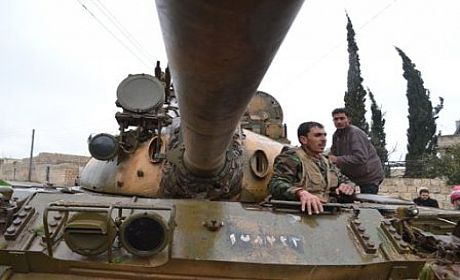Opponents of Bashar Assad Frustrated

Mr. Muaz al-Khatib, the head of the Syrian National Opposition Coalition, has declared his readiness to negotiate with the Syrian government. What is your analysis of this position?
We must understand on whose behalf Mr. Muaz al-Khatib is proposing this idea. Is this his personal opinion or the opinion of the general coalition which the Americans and the Qataris and the Turks have established? Therefore, it must be clarified which part of the coalition he is representing .The value of this position is determined when Mr. Muaz al-Khatib is able to stop the violence. If hundreds of such positions are taken but the violence still continues, this would show that he has no power and those who are present in the scene and fight and take terrorist measures do not pay attention to his ideas. Thus, it must be considered that this position is valuable to the extent of its impacts on the scene.
Now let's assume that this was the position of the whole coalition. We must note that Mr. Muaz al-Khatib represents a part of the outside opposition. The coalition is part of the outside opposition which has no authenticity. These are the people who take orders from the West and gain their financial resources from other parties. Therefore, the opinion of the coalition is the opinion of their western and Arab supporters. These have no value. It must be seen whether their masters have the same positions.
The next question is whether the rest of the outside opposition accept this coalition and its positions or not. Basically, what is the weight of the outside opposition in comparison with the inside opposition who have opposed Bashar Assad since many years ago but were against war and thought that these oppositions must be declared peacefully and with no foreign intervention? It is in this case that one can say how important this position is.
The westerners and the kings of some regional countries who, hitherto, have given arms and money to the opposition and dispatched terrorists to Syria, have reached the conclusion after twenty three months that they cannot succeed through military means. They now want to achieve what they could not achieve through the military option with negotiation. Naturally, they will not reach their goals. They were not able to overthrow the government of Bashar Assad with force, can they now do it through negotiations?
How does Iran view this proposal?
The important point, which Iran supports and based on which Mr. Salehi, the Foreign Minister, accepted to meet with Mr. Muaz al-Khatib, is that the option of violence must be eliminated and a solution based on negotiation must begin. The negotiation must be completely Syrian-Syrian. The solution to the Syrian crisis must be completely national and pursued without any foreign intervention.
It is natural that those who have so far invested in the field of arms in Syria now invest in politics to be effective inside Syria and create a dependent and non-resistant Syria. The people of Syria will certainly not allow foreign intervention and money to be the determining factors in their destiny. Some Arab countries have, hitherto, victimized the people of Syria by sending money and arms and terrorists and weakened the anti-Israeli power of the people, army and government of Syria in their domestic conflicts. This time, the people of Syria will not permit their intervention in the political scene of Syria.
Iran accepts any call which negates militarism and terrorism and considers peaceful solutions and negotiations and compromise and is ready to negotiate based on these ideas. But what role they will play in Syrian-Syrian negotiations depends on the opinion of the Syrian people.
A few days ago, before Muaz al-Khatib's announcement of his readiness to negotiate with the government of Syria, we witnessed US support for the Syrian-Syrian solution. What impacts has the US’ position had on al-Khatib's position?
It has certainly had direct impacts. They are not independent. They are the lackeys of big investors who give them arms. They are the lackeys of those who have created them. Mrs. Clinton, who had created the National Council in Istanbul, dissolved the National Council of Syria in one interview and established the National Coalition in Doha. Their policies have so far been to fight and the national coalition and others have all beaten the drum of war. But suddenly the policy changed in the Munich Conference.
The Syrian army has, during recent days, had advances in regions controlled by the opposition. To what extent do you believe this issue has impacted the position taken by Muaz al-Khatib?
There is no doubt that the advances of the Syrian army have impacted this position. The more they move towards a political solution, the less money will be spent on armed measures and those who were fighting in the scene would not receive money, thus, would fight less.
You mentioned that the western and Arab parties will invest in politics from now on. How would they invest in this regard?
They will certainly attempt to spend money in order to impact Syria's election and determine its path. This is foreign intervention in Syria's domestic affairs and the people of Syria will not allow it.

